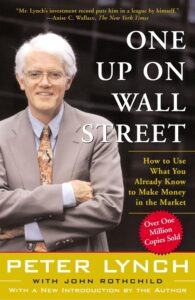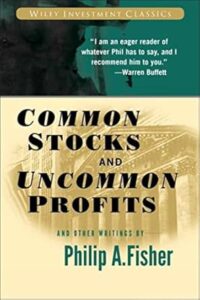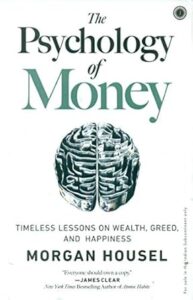Stock Market Books: The Best Reads for Beginners to Master Investing
Stock market Book investing can be very challenging and intimidating for newcomers. It’s very hard to make sense of all the strategies, technical terms, and risks. That’s why don’t be shocked if the very useful stock market books will illustrate the tough words with simple examples and give you a basic idea. If you are a total neophyte who wants to master the basics or someone who needs to get better at investing, the following books will offer you the knowledge that will help you be a wise money handler. Let’s check some of the best stock market books to the ones who are inexperienced investors.
1. The Intelligent Investor by Benjamin Graham
Satisfaction from reading
This is, in fact, the **bible of investing, and it was penned by Benjamin Graham, the teacher of Warren Buffett. The book lays down the principles of value investing, the same technique later executed by the author himself. It is buying stocks which are too low in price as compared to its intrinsic value. Moreover, the book also helps in the identification of pitfalls one would most probably come across while making investments.
Key Takeaways:
- The book tells that long-term financial planning is a crucial component while day-trading should be avoided.
- The book brings up the **margin of safety** idea which is defined as the purchase of stocks at a price that is below the intrinsic value in order to decrease the risk.
- Shows how to utilize financial numbers to determine the value of stocks without relying on the hype of the market.
- Will educate you about how to capitalize on market downgrades rather than basing your decisions on fear or greed emotions
Best For:
For both beginners and experts who wish to implement the systematic and thoughtful approach to investment.

2. One Up on Wall Street by Peter Lynch
Why Read It?
Peter Lynch is one of the greatest portfolio specialists throughout history. In this stock market books, he explains his own investment philosophy and advises the readers on how they can compete with Wall Street professionals by relying on their own minds and experiences.
Key Takeaways:
- Advises to investors to think twice before giving the essential capital to familiar companies they understand rather than “jumping on the bandwagon” and investing in companies based on the current fashion.
- Informs about how to detect underpriced stocks early enough before they attract the attention of mass investors.
- Emphasizes the significance of long-term investments and the role of patience in achieving impressive returns.
Suggests practical approaches to analyzing various companies and different business sectors.
Best For:
Beginners are who are going through the process of finding the stocks which are successful and are based on the everyday living of the people who do not have any basic knowledge of a stock market but desire to understand the same.

3. The Little Book That Still Beats the Market by Joel Greenblatt
Why Read It?
Joel Greenblatt makes investing an easy task with the help of his Magic Formula- a simplified method for selecting companies with low prices and high earning power. This stock market books can be easily understood by the author’s writing style which lets an inexperienced user to learn the basics with ease.
Key Takeaways
- Presents the Magic Formula where the stocks are ranked based on their earnings yield and the return on capital that they have been able to generate.
- Shows in a way that it is a good choice to invest in a company and focus more on the long run rather than short-term fluctuations within the stock market, asking about their earnings and revenues – if the company is truly healthy, then it could definitely provide one with much more money and opportunities.
- Delivers a methodical explanation on how one can reach high-quality stocks.
- Asks us gently to stay calm and stay with our decisions, which is one of the most needed traits for winning games in the stock market, thus, if building a fortune is really our main and only goal. The best thing about being wealthy is becoming patient and disciplined. As one can often stay by the things he/she does or loves the most.
Best For:
Newcomers are recommended to start using a simple but effective method to identify profitable stocks.

4. Common Stocks and Uncommon Profits by Philip Fisher
Why Read It?
Philip Fisher’s emphasis on growth investing in his stock market books shows us what are the methods of investing in companies with long-term growth potential. The piece just focuses on the other side of the balance sheet where financial statements do not reveal company potential.
Key Takeaways:
- Offers a 15-transformed questionnaire to appraise a company’s prospects of success.
Emphasizes that the main factors in each company’s success are its management and innovation. - It provides a guide for choosing companies that are expected to perform well over the years due to their rapid expansion.
- Illustrates the reason for the fact that investors should look at the company’s prospects in the long run, rather than focusing on short-term market trends.
Best For:
Investors who see the stock market as a source of growth and want to achieve long-term wealth

5. The Psychology of Money by Morgan Housel
Why Read It?
This stock market books addresses not only the investment approaches but also the behavioral aspect of money management. Morgna Housel points out that the success of financial affairs should be attributed far more to one’s conduct and discipline than to the mere acquisition of knowledge.

Conclusion
Stock market Book investing is not really as complicated as you would think, and the right books can make a big difference to help you become a knowledgeable and confident investor. No matter if your favorite is value investing, growth investing, or behavioral finance you’ll find the stock market books that suits your needs. Through listening to the advice of successful investors and the knowledge gained from financial gurus, you are now well-placed to perfect the skills necessary to steer hard-earned funds into-wise investment developments.
If you are a beginner, you may decide to begin with only one book from among them and gradually continue. Keep in mind that investing is a lifelong learning process, and the more information you acquire, the more equipped you will be to manage the stock market successfully. Happy investing!
click here for how to invest in stock market



